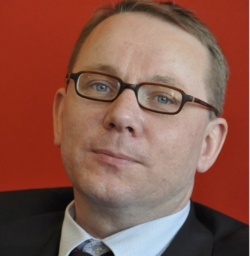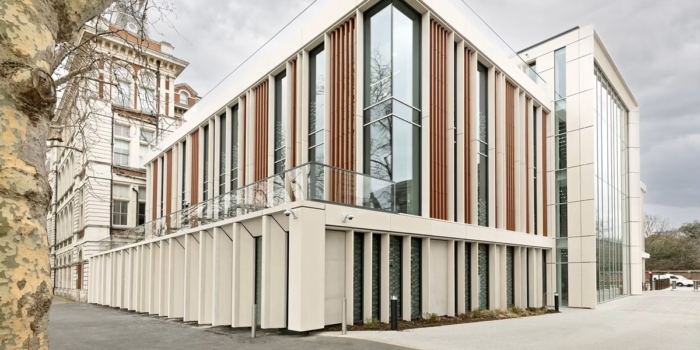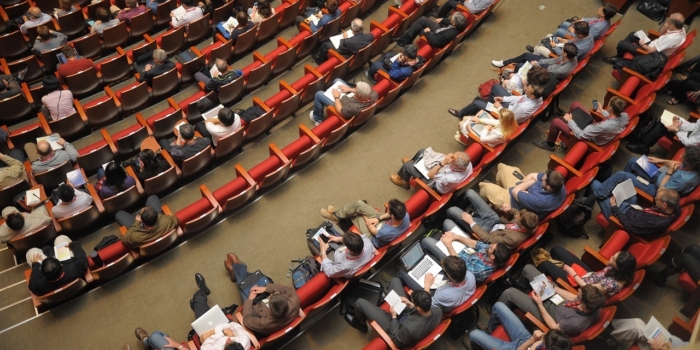A guest blog from Dr Gert Jan Scheurwater, Director of Strategy and Foresight at Delft University of Technology, Netherlands

For centuries, technology-based innovations and the engineers who invented them have been pivotal drivers of social and economic progress – creating new possibilities and solving new problems. The same is no less true today, indeed the diversity of challenges to be encountered and the technology-based possibilities for addressing them are much greater than ever before.
The difference today is that the urgent questions facing society – some of them actually created by technological advances themselves – are far more complex and ambiguous in their nature and impacts, so that the roles and necessary skills of engineers in helping to solve (or at least ameliorate) have become far more multifarious and diverse.
It is no longer enough to characterise engineers as those who “make things better by making better things”. Their roles now span from the research lab to the corridors of government, while the ‘things’ that that they help conceive, design and realise are as likely to be digital or virtual as physical.
These developments, while hugely exciting, present major challenges for the universities and faculties charged with educating future generations of engineers for the diversity of roles awaiting them.
How can we best prepare young engineers today for careers that will extend to 2050 and beyond, with all the associated challenges, known and unknown, they will face?
In common with many of our peer institutions, Delft University of Technology (TU Delft) has been rethinking strategies for engineering education to better align with the emerging and future demands of a VUCA (volatile, uncertain, complex and ambiguous) world.
As TU Delft started on this initiative, it quickly became clear that we needed to move away from conventional approaches of extrapolation from current operations in which the future is postulated to be incrementally similar to the past.
To bring this backward- and dominantly inward-looking perspective more into balance with emergent and external future developments, TU Delft concluded that tools and methods of Strategic Foresight offer promising ways of creating a more fruitful balance between the ‘here and now’ and the ‘unknown unknowns’ of the future.
Strategic Foresight offers a range of systematic approaches to thinking about future uncertainties, envisaging, evaluating and anticipating potential developments in global and sectoral environments.
Starting just after WWII it has been refined and adopted across many business sectors and by international governmental organisations including the United Nations, the European Commission and the OECD, as well as a pioneering unit in the UK Government Office for Science.
It essentially consists of framing answers to forward-looking questions, including:
- What signals, trends and events are (potentially) emerging affecting our organisation and what impacts (positively or negatively) could they have?
- What plausible futures can we envision based on these developments?
- Are we resilient enough to navigate these possible futures?
- What should we be doing now to anticipate these potential futures?
Although Strategic Foresight and its related methods have been around for many years, they are relatively new and underdeveloped among universities. Introducing Strategic Foresight into an academic setting implies changing habitual thinking about the university’s future, re-considering customary mindsets and challenging entrenched assumptions. Impactful implementation revolves around organising broad acceptance and support, while ensuring that strategic foresight does not become an isolated theoretical ivory tower exercise. The ‘Delft Approach’, described below, is addressing all of these challenges.
Learning from COVID-19 and its profound impacts, early in 2023 the Executive Board of TU Delft commissioned advice about how TU Delft’s resilience could be strengthened by introducing strategic foresight. After an extensive round of interviews with a broad spectrum of experts and stakeholders an advisory report titled Navigating Complexity was delivered.
One of its recommendations was to establish a foresight capability. This recommendation also became one of the formal priorities of TU Delft’s Strategic Agenda 2024-2030, in which it was recognised that the formulation of strategies and decisions in many parts of the university was taking place under conditions of increasing uncertainty.Furthermore it was stated that “in this rapidly changing, ambiguous, complex context, it is therefore essential for TU Delft to be better prepared for unforeseen circumstances. TU Delft will use the coming years to develop a strategic foresight facility and will start working more systematically within the organisation with proven foresight tools, such as horizon scanning, scenario development and policy stress testing.”
The department of Strategy Development was assigned to be the incubator or “nursery” for realising this strategic priority.
This is work-in-progress, but for now Strategic Foresight TU Delft is being established along three lines or pillars:
Foresight Field Labs
The Labs focus on facilitating strategy and policy development deep within the organisation (faculties, departments within faculties, central policy directorates) where the application of instruments in the field of strategic foresight is central. At this moment, we have completed five of these Labs, and more are underway this year.
TU Delft Futures
At a whole-institution level, we have started bringing in and translating ideas from outside the system into the internal world of the university. This is currently done mainly through a range of Foresight Seminars and Foresight Masterclasses. A project to explore possible Futures of Engineering Education in 2050 is also part of this second pillar. The idea is to scale up this part of the foresight activities, for instance by producing Foresight “Horizon-papers” – quick scan analyses of emerging external developments.
Innovation & Foresight Training
The third pillar involves offering training and education for advisors and managers. This will be developed next year building on already existing training modules on organization, strategy development and process management. Such a facility contributes also to enhance futures literacy.
The first results of this strategic initiative look promising. As part of internal quality controls a self-assessment and international mid-term peer review of this functionality is expected to be applied in 2026 and 2027.
If you’d like to read more about TU Delft’s strategic approach to long-range challenges, visit the TU Delft Foresight website and read Spotting grey swans: using foresight for strategy development in academia.




